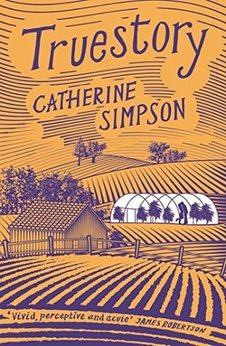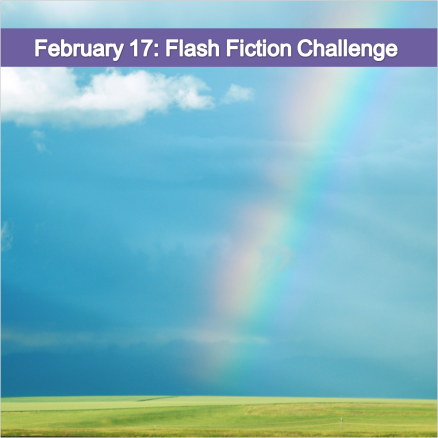| Alice doesn’t get out much. In fact, the only time she is able to leave the Lancashire farm where she lives with her husband, Duncan, and eleven-year-old son, Sam, is for two hours on a Tuesday afternoon when she sits in a sad café nursing a cooling cup of tea and a shortbread biscuit. It’s not that she’s overly busy with farm work. It’s not that she’s kept away from the world by a controlling husband. But her life is restricted by her family: Sam is a boy with problems, averse to change, terrified of noise and the colour yellow, and, although he won’t let her comfort him the way a mother might, he’s liable to go into “meltdown” if she leaves him too long with a father who has little understanding of the boy’s needs. |
Truestory is a poignant tale of entrapment: in mothering, in poverty, in a stagnant marriage and in terror of the things we can’t control. Alice’s chapters are interspersed with Sam’s interactions in an Internet chat room (Truestory is the boy’s username) where his attempts to get answers to life’s big questions such as “How do I know what I want?” and “Why am I frightened of something that cannot happen?” yield some amusing answers. All four main characters (even the hapless Duncan) are sympathetically drawn and I couldn’t help rooting for them. If you’ve ever felt stuck in a rut, if you’ve ever felt a failure at your primary purpose in life, if you’ve ever felt terror at things others take in their stride and if you’ve ever looked to romance to rescue you from yourself, you’ll find a point of connection in Catherine Simpson’s debut novel – and even if you haven’t, you can draw on your compassion to savour the story. Thanks to Sandstone Press for my review copy of this engaging debut novel.
There’s a movement among some people on the autistic spectrum to reject the rhetoric of disability and disorder and make a case for neurodiversity, bringing the focus away from their limitations to their skills, such as diligence and attention to detail. As I write this, the screech of a chainsaw (the neighbours pruning their trees) is tearing at my innards (too laborious to go into detail, but I interpret my fear of noise as a consequence of insecure attachment), reminding me I’m not so different from Sam as I wish. It makes me wonder, as with many sources of difference, whether it would be more fruitful to view this heightened sensitivity as a continuum rather than dividing people into categories, and whether indeed few of us would prove to be neurotypical if put to the test.
Having just missed the boat with my review of Where the River Parts, a novel about atrocities sparked by intolerance of religious and cultural difference, and incidentally another Sandstone title, when Charli Mills called for 99-word stories about diversity, I decided to go straight for the brain. (Although it wasn’t an easy decision, as I have a review I want to fit in before the end of LGBT history month.) As there’s a part of me still feeling the pull of the wild from last week’s prompt, and the shadow of boy and his dog from last month (note, that the deadline for the flash fiction contest has been extended to the end of March) this is where it took me:
| Neurodiversity Lacing up our boots, the heather glowed pink from the rising sun. Worry-lines faded from his brow as we tramped across the moor. No sound but birdsong. Out here, Sam was a normal boy. It crept up gentle as a bee, but soon the drone roared above us, churning the air. Sam flopped to the ground, screaming, limbs in spasm. I was helpless: hugs would make him worse. The drone moved off. As Sam settled, my anxiety escalated. Somewhere, somehow I’d dropped the map. Got my boy doubly lost. Sam tapped his forehead. “Don’t worry, it’s all in here.” |























 RSS Feed
RSS Feed





















